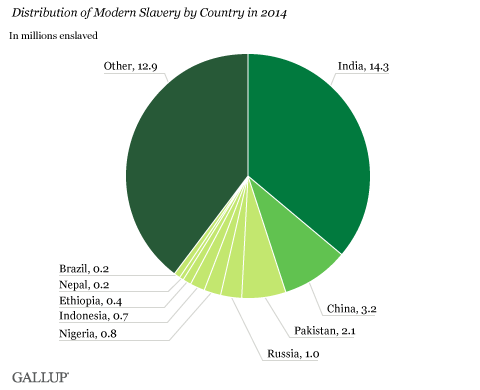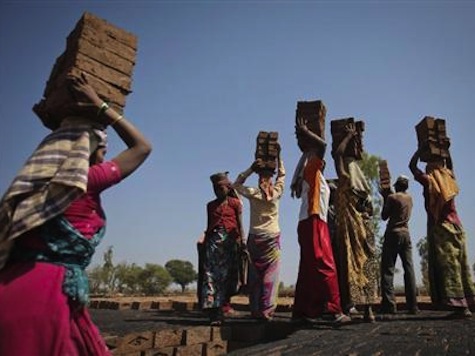
A joint study by Gallup and the Walk Free Foundation finds that the global scourge of slavery has now grown to include 35.8 million adults and children worldwide.
In raw numbers, India was found to have the highest number of slaves (14.3 million), followed by China (3.2 million), and Pakistan (2.1 million).

“When I refused to return, my father dug a deep hole in the ground. He forced me into it and began to bury me. I still wonder if he really would have buried me alive if the neighbours hadn’t heard my screaming and stopped him,” said Shahida.
“Religion and slavery are closely interrelated in Mauritania,” says the report. “Religion is often used by masters as justification for ownership over another person. Activists say some Imams (Islamic religious leaders) continue to speak in favour of slavery in mosques, particularly in rural areas.”
Poverty was found to be a risk factor for slavery; however, “poverty alone does not tell the whole story,” reports Gallup. Other drivers of modern slavery included belief systems and attitudes, as well as corruption and poor governance.

COMMENTS
Please let us know if you're having issues with commenting.